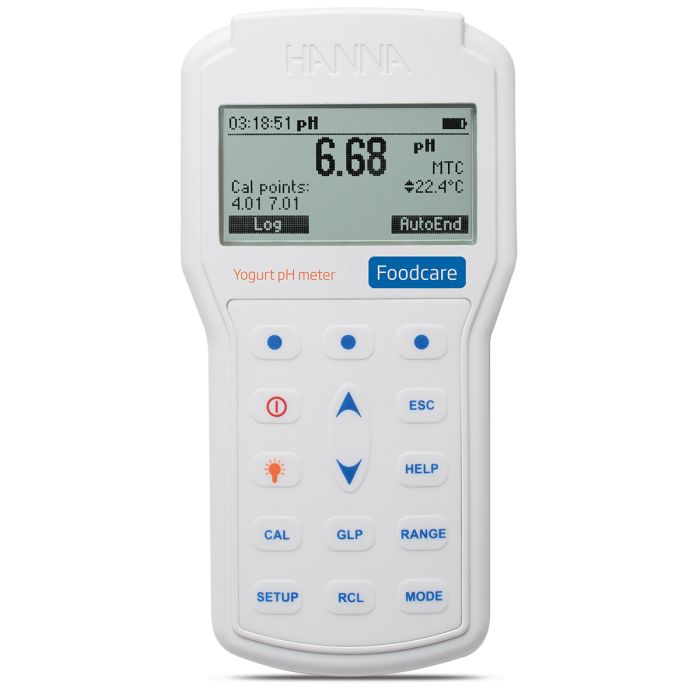Monitoring pH is crucial in producing consistent, quality yogurt. Yogurt is made by the fermentation of milk with live bacterial cultures. Most yogurts are inoculated with a starter culture consisting of Lactobacillus bulgaricus and Streptococcus thermophilus. Once the live culture is added, the mixture of milk and bacteria is incubated, allowing for fermentation of lactose to lactic acid. The pH of the mixture drops and becomes more acidic due to the lactic acid production; it is this reduction in pH causes the casein protein in milk to coagulate and precipitate, resulting in a yogurt-like texture.
Yogurt producers cease incubation once a specific pH level is reached. Most producers have a desired point between pH 4.0 and 4.6 in which fermentation is stopped by rapid cooling. Within this range of pH there is an ideal amount of lactic acid present for yogurt, giving it the characteristic tartness, aiding in thickening, and acting as a preservative against undesirable strains of bacteria.
By verifying that fermentation continues to a predetermined pH endpoint, yogurt producers can ensure their products remain consistent in terms of flavor, aroma, and texture. A deviation from the predetermined pH can lead to a reduced shelf life of yogurt or create a product that is too bitter or tart. Syneresis can also occur if fermentation is stopped too early or too late, resulting in yogurt that is respectively too alkaline or too acidic. Syneresis is the separation of liquid, in this case whey, from the milk solids. Consumers expect yogurt to remain texturally consistent, so ensuring fermentation is stopped at the appropriate pH is vital to consumer perception.
Yogurt can provide a number of challenges for the person that needs to measure pH. Yogurt is a semi-solid to slurry that has a very high solids content. This type of sample will coat the sensitive glass membrane surface and/or clog the reference junction. The FC2133 that is supplied with the HI98164 is designed specifically for measuring pH in yogurt. From a conic tip shape for easy penetration to an open junction that resist clogging; the FC2133 is an ideal general-purpose pH electrode for yogurt products. The FC2133 connects to the HI98164 with a quick-connect, waterproof DIN connector, allowing for a secure, non-threaded attachment.

